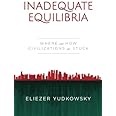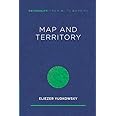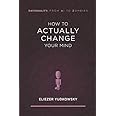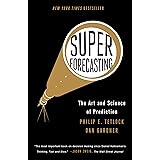
Enjoy fast, free delivery, exclusive deals, and award-winning movies & TV shows with Prime
Try Prime
and start saving today with fast, free delivery
Amazon Prime includes:
Fast, FREE Delivery is available to Prime members. To join, select "Try Amazon Prime and start saving today with Fast, FREE Delivery" below the Add to Cart button.
Amazon Prime members enjoy:- Cardmembers earn 5% Back at Amazon.com with a Prime Credit Card.
- Unlimited Free Two-Day Delivery
- Streaming of thousands of movies and TV shows with limited ads on Prime Video.
- A Kindle book to borrow for free each month - with no due dates
- Listen to over 2 million songs and hundreds of playlists
- Unlimited photo storage with anywhere access
Important: Your credit card will NOT be charged when you start your free trial or if you cancel during the trial period. If you're happy with Amazon Prime, do nothing. At the end of the free trial, your membership will automatically upgrade to a monthly membership.
Buy new:
$5.29$5.29
Ships from: Amazon.com Sold by: Amazon.com
Save with Used - Good
$1.30$1.30

Download the free Kindle app and start reading Kindle books instantly on your smartphone, tablet, or computer - no Kindle device required.
Read instantly on your browser with Kindle for Web.
Using your mobile phone camera - scan the code below and download the Kindle app.

OK
Inadequate Equilibria: Where and How Civilizations Get Stuck Paperback – November 15, 2017

Explore your book, then jump right back to where you left off with Page Flip.
View high quality images that let you zoom in to take a closer look.
Enjoy features only possible in digital – start reading right away, carry your library with you, adjust the font, create shareable notes and highlights, and more.
Discover additional details about the events, people, and places in your book, with Wikipedia integration.
Purchase options and add-ons
- Print length180 pages
- LanguageEnglish
- Publication dateNovember 15, 2017
- Dimensions6 x 0.41 x 9 inches
- ISBN-101939311225
- ISBN-13978-1939311221
Frequently bought together

Customers who viewed this item also viewed
Editorial Reviews
Review
From the Author
Product details
- Publisher : Machine Intelligence Research Institute (November 15, 2017)
- Language : English
- Paperback : 180 pages
- ISBN-10 : 1939311225
- ISBN-13 : 978-1939311221
- Item Weight : 10.4 ounces
- Dimensions : 6 x 0.41 x 9 inches
- Best Sellers Rank: #341,372 in Books (See Top 100 in Books)
- #71 in Microeconomics (Books)
- Customer Reviews:
About the author

Eliezer Yudkowsky is a decision theorist and computer scientist at the Machine Intelligence Research Institute in Berkeley, California who is known for his work in technological forecasting. His publications include the Cambridge Handbook of Artificial Intelligence chapter “The Ethics of Artificial Intelligence,” co-authored with Nick Bostrom. Yudkowsky’s writings have helped spark a number of ongoing academic and public debates about the long-term impact of AI, and he has written a number of popular introductions to topics in cognitive science and formal epistemology, such as “Rationality: From AI to Zombies” and “Harry Potter and the Methods of Rationality”.
Customer reviews
Customer Reviews, including Product Star Ratings help customers to learn more about the product and decide whether it is the right product for them.
To calculate the overall star rating and percentage breakdown by star, we don’t use a simple average. Instead, our system considers things like how recent a review is and if the reviewer bought the item on Amazon. It also analyzed reviews to verify trustworthiness.
Learn more how customers reviews work on Amazon-
Top reviews
Top reviews from the United States
There was a problem filtering reviews right now. Please try again later.
- Microeconomic tools for judging the epistemic incentives of groups of experts
- Concise and useful explanations for how major insitutions (academia, medicine, politics, venture capitalism) break
- Case studies in how to successful use Aumman's agreement theorem in real life
The most valuable part of this book by far is chapter 3, which is an extended dialogue between a cynical conventional economist ("C.C.E" or 'Cecie') and a visitor from a different world, trying to explain why a particular institution is killing babies. The example is a real one - the FDA hasn't approved a simple set of fats for intravenous baby food, causing severe brain damage in something like dozens of babies per year. And the explanation is a whirlwind tour of how our institutions work and how they break, with many concepts that I've been able to use elsewhere to great benefit.
Above all, this book has changed the way I think about learning from experts. I'll end my review with an example of how I analyse things like this now.
Recently someone came to me proposing a project for building a math-education website - combining math explanations and machine learning algorithms, connecting you with the best explanation given your background knowledge. And of my first 3 thoughts, 2 were about how the site would function and how a user would interact with it - it's important to concretely visualise a product to figure out if it feels like it would work. However, my 3rd thought was to do an adequacy analysis - I looked for data points about whether I should expect that, if this is a good idea that can work, why hasn't someone already done it? Think about all the money and time people spend on education each year - all the tutors in universities, all the teachers in high schools, all the assistant lecturers and support staff and government subsidies. Surely, if this project was a good idea, someone would've built it and it would be a common website we all use. Is the fact that this doesn't exist already enough evidence that it won't work?
In general I don't see the educational marketplace of resources changing rapidly in response to new tech and research. There was a bunch of research about spaced repetition and how memorisation works, that nobody has jumped to incorporate into how universities work. Many people can tell you the best physics/math textbooks (e.g. Feynman Lectures) but most students will never read them. It *doesn't* look to me like a space where it would require a great deal of effort to out-do the best in the field. You might counter by pointing out the success of Khan Academy, but personally I'm not sure I'd consider the fact that a single dad can make lots of videos and do better than everyone else, a sign of success for the educational market.
I'm not actually very confident in this analysis. However, the best part is that I can learn about the whole field by working on the one project. If the project fails, or I find out that someone else has tried this and failed, then I'll change my assessment of other projects in this space. On the other hand, if the project succeeds, I will update about how good the educational market is at incentivising people to create useful things like this.
I wouldn't have made these models and hypotheses before, and for that reason I'm really glad I read this book.
But largely because of varying incentive structures, not every domain is efficient in this way. Thus it is feasible for a mere decision theorist to correctly diagnose problems with the Bank of Japan's monetary policy, even though the BoJ is run by domain experts.
How is this possible? And why do some people insist that it is not possible?
It is possible because (a) the BoJ governor cannot personally profit handsomely by making correct monetary policy, and (b) an outsider who lacks object-level expertise can still possess meta-level expertise, allowing him to correctly identify worthy object-level experts whose opinions to trust.
Some people insist this is not possible, and that adjusting your beliefs to those of a wider reference class is always preferable. They do this at least in part because of status-related emotions.
This book is basically an extended meditation on why EY should not have to quit his contrarian ways just because of Aumann's theorem. That's putting it glibly. It's actually pretty insightful and a quick read.
Unfortunately, it would have been a much more engaging book had the author a better skill in forming comprehensible narration. The language is cryptic and depends too much on negations chained one after another within single sentences. The systemic flaw given the most floor in the book - US healthcare providing potentially harmful lipids for babies in need of parenteral feeding - is not explained in a compelling way. “Why isn't the society saving babies?”, the question is repeated page after page, but the answer is an outstretched conclusion from a few valid points themselves spread far and wide. Ultimately, the wobbly reasoning seems to point to democracy itself as the root cause. Not enough babies are hurt annually to make it ever a case for congressmen to pick up? Frankly, I don’t buy it. Nor do I blindly believe that the solution to such problems is deregulation.
The book is uneven. A thought experiment rather than well-researched work, not easy to digest, with plenty of reasoning shortcuts pretending to be rational explanations. Read with caution.
Top reviews from other countries
Sehr spannend und kurzweilig zu lesen, mit vielen intelligenten Ansätzen um über die großen Fragen unserer heutigen Welt nachzudenken.















